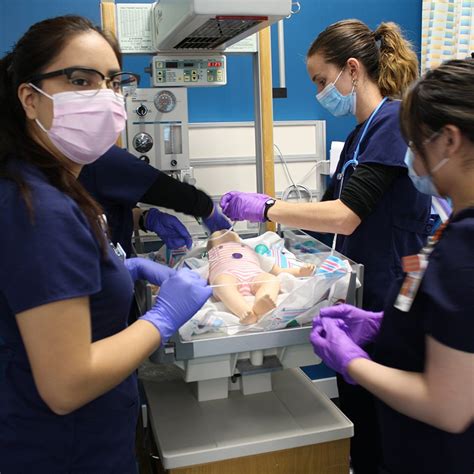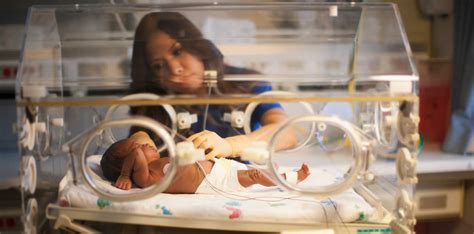Intro
Discover the NICU nurse job description and requirements. Learn about the role of a neonatal intensive care unit nurse, including responsibilities, skills, and education needed to care for critically ill newborns. Explore the challenges and rewards of this specialized nursing career, from neonatal care to family support.
Nurses are the backbone of the healthcare system, and among them, NICU (Neonatal Intensive Care Unit) nurses play a crucial role in caring for the most vulnerable patients - newborn babies. NICU nurses, also known as neonatal nurses, are specialized professionals who provide critical care to infants who are premature, critically ill, or require close monitoring. In this article, we will delve into the NICU nurse job description, responsibilities, and requirements.

NICU nurses work in a fast-paced environment, where every decision counts, and every action can impact the life of a fragile newborn. Their primary goal is to provide high-quality, patient-centered care to ensure the best possible outcomes for these tiny patients. To achieve this, NICU nurses must possess a unique blend of clinical expertise, critical thinking, and compassion.
Key Responsibilities of a NICU Nurse
NICU nurses are responsible for a wide range of tasks, including:
Assessment and Care Planning
- Assessing the physical and emotional needs of newborns, including those with complex medical conditions
- Developing and implementing individualized care plans to meet the unique needs of each patient
- Collaborating with interdisciplinary teams, including physicians, therapists, and social workers, to ensure comprehensive care
Clinical Skills
- Providing basic and advanced life support, including CPR and ventilation management
- Administering medications, including antibiotics and pain management
- Conducting various medical procedures, such as blood draws, lumbar punctures, and chest tube insertions
- Monitoring vital signs, including heart rate, blood pressure, and oxygen saturation
Communication and Education
- Communicating effectively with families, including providing emotional support and education on infant care
- Educating parents on breastfeeding, skin-to-skin contact, and other essential care practices
- Collaborating with other healthcare professionals to ensure seamless transitions and continuity of care
Leadership and Professional Development
- Mentoring and precepting new staff members and students
- Participating in quality improvement initiatives and research studies
- Staying current with the latest evidence-based practices and advancements in neonatal care

Requirements and Qualifications
To become a NICU nurse, one must meet the following requirements:
Education and Licensure
- Earn a Bachelor's degree in nursing (BSN) or an Associate's degree in nursing (ADN)
- Obtain a registered nurse (RN) license in the state of practice
- Consider pursuing a Master's degree in nursing (MSN) or a Doctoral degree in nursing (DNP) for advanced practice roles
Certifications and Training
- Obtain certification in neonatal intensive care, such as the Certified Neonatal Intensive Care Nurse (C-NIC) or the Neonatal Resuscitation Program (NRP)
- Complete continuing education courses and training programs to stay current with the latest advances in neonatal care
Skills and Personal Qualities
- Possess strong clinical skills, critical thinking, and problem-solving abilities
- Demonstrate compassion, empathy, and effective communication skills
- Ability to work in a fast-paced environment with high levels of stress and uncertainty

Salary and Job Outlook
The salary range for NICU nurses varies depending on factors such as location, experience, and education level. According to the Bureau of Labor Statistics (BLS), the median annual salary for registered nurses was $76,840 in May 2020. NICU nurses can expect to earn higher salaries, ranging from $80,000 to over $120,000 per year.
The job outlook for NICU nurses is excellent, with the BLS predicting a 12% growth in employment opportunities for registered nurses from 2020 to 2030. This growth is driven by an increasing demand for healthcare services, particularly in the area of neonatal care.

Conclusion
NICU nurses play a vital role in the healthcare system, providing critical care to newborns who require specialized attention. To become a NICU nurse, one must possess a unique blend of clinical expertise, critical thinking, and compassion. With the right education, training, and certifications, NICU nurses can enjoy a rewarding and challenging career, making a difference in the lives of tiny patients and their families.
What is the average salary for a NICU nurse?
+The average salary for a NICU nurse can range from $80,000 to over $120,000 per year, depending on factors such as location, experience, and education level.
What certifications are required for NICU nurses?
+NICU nurses can obtain certification in neonatal intensive care, such as the Certified Neonatal Intensive Care Nurse (C-NIC) or the Neonatal Resuscitation Program (NRP).
What is the job outlook for NICU nurses?
+The job outlook for NICU nurses is excellent, with a 12% growth in employment opportunities predicted from 2020 to 2030.
